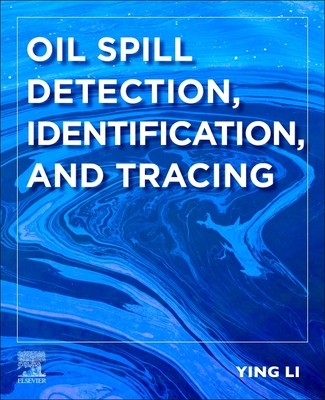
- We will send in 10–14 business days.
- SAVE -10% with code: EXTRA
Reviews
Description
Early detection, timely tracking and accurate tracing of marine oil spills are central to oil spill prevention and oil spill emergency treatment. Oil Spill Detection, Identification and Tracing provides readers with an overview of currently applicable technical methods including early warning monitoring of trace oil film in ports, remote sensing monitoring of sea surface oil spills, and source tracing.
Beginning with an introduction to causes and characteristics of oil spills on water, chapters then evaluate a range of different oil spill detection methods, including passive optical remote sensing, active optical remote sensing, marine radar, and GNSS-R. The book then reviews oil spill traceability technology, highlighting the ecological effect of oil spills on oceanic environment, current studies on oil spill fingerprinting methods, and the application of stable isotope technology in oil spill tracing. The book concludes with three key case studies with real-world scenarios.
Oil Spill Detection, Identification and Tracing is a practical resource for students, researchers and engineers interested in oil spill pollution, environmental science, and the marine environment.
EXTRA 10 % discount with code: EXTRA
The promotion ends in 19d.18:09:36
The discount code is valid when purchasing from 10 €. Discounts do not stack.
- Author: Ying Li
- Publisher: Elsevier
- ISBN-10: 0443137781
- ISBN-13: 9780443137785
- Format: 19.1 x 23.5 x 1.7 cm, softcover
- Language: English English
Early detection, timely tracking and accurate tracing of marine oil spills are central to oil spill prevention and oil spill emergency treatment. Oil Spill Detection, Identification and Tracing provides readers with an overview of currently applicable technical methods including early warning monitoring of trace oil film in ports, remote sensing monitoring of sea surface oil spills, and source tracing.
Beginning with an introduction to causes and characteristics of oil spills on water, chapters then evaluate a range of different oil spill detection methods, including passive optical remote sensing, active optical remote sensing, marine radar, and GNSS-R. The book then reviews oil spill traceability technology, highlighting the ecological effect of oil spills on oceanic environment, current studies on oil spill fingerprinting methods, and the application of stable isotope technology in oil spill tracing. The book concludes with three key case studies with real-world scenarios.
Oil Spill Detection, Identification and Tracing is a practical resource for students, researchers and engineers interested in oil spill pollution, environmental science, and the marine environment.


Reviews